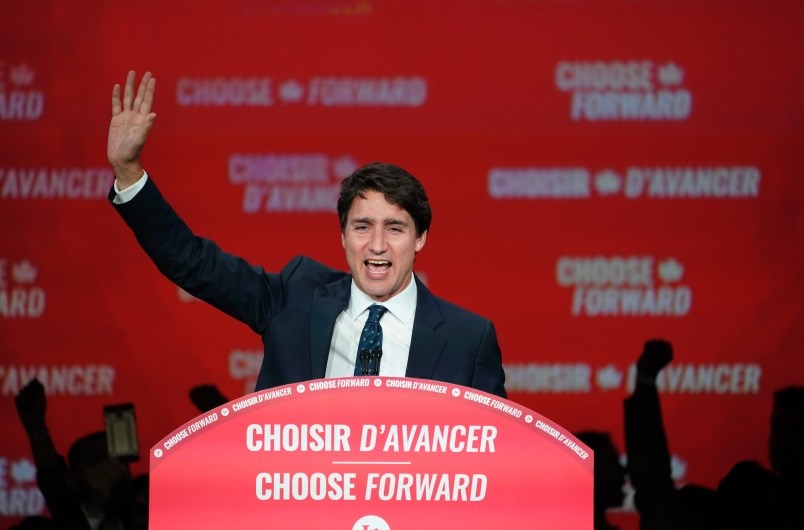Small-business owners are hoping that the NDP’s increased influence in Ottawa could mean more pressure on the Liberal government to reduce the size of credit-card fees that businesses must pay on every transaction.
Prime Minister Justin Trudeau said Oct. 23 that his minority government plans to govern on an issue-by-issue basis, and that he has no plans to enter into a coalition with any other party so that he can govern as though it has a majority.
He will, however, be dependent primarily on continuing support from the NDP, which gained 24 seats – a number that when combined with the Liberals’ 157 seats provides for a majority of seats in the House of Commons.
The NDP's New Westminster–Burnaby MP Peter Julian could play a key role in advocating for his party’s policies, as he may stay on as the party’s finance critic.
On September 16, Julian attended a Greater Vancouver Board of Trade event and was the NDP’s representative addressing policy issues.
One of the points that Julian touched on was what he called his party’s policy to reduce interchange fees that credit card companies charge retailers and other small-business owners each time they process customer transactions, Retail Council of Canada (RCC) director of government relations Greg Wilson told Business in Vancouver.
Wilson’s organization has long advocated “reducing” those fees, which tend to add 1.5 per cent to the cost of transactions. Wilson estimated that, in total, Canadians pay $7 billion each year in interchange fees – costs that trickle down to increase the price of goods.
In April 2015, the EU’s Council of Ministers and the European Parliament adopted the Interchange Fee Regulation, which started in December 2015 and capped interchange fees for cards issued and used in Europe at a maximum of 0.2 per cent for debit cards, and 0.3per cent for credit cards.
Wilson said the RCC did not have a specific target for a cap on rates in Canada, but that it would be happy with anything that would lead to a reduction.
Wilson stressed that the RCC’s job is to work with any incoming government, but that a Liberal government could be better for retailers in terms of helping them obtain necessary labour.
“Any cuts in immigration would have probably not had a positive impact on the labour shortage in retail employees,” he said, suggesting that many new immigrants work in retail.
The Liberals have set an aim for a limit of 350,000 immigrants annually by 2021, up from about 300,000 in 2018. Conservative leader Andrew Scheer, when pressed in the campaign, said that that amount was reasonable.
Wilson pointed to transit funding as a key part of helping retailers find labour.
The Conservatives promised to spread out the $187 billion in infrastructure funding that the government had committed to spend in the next 12 years, to be spent instead in the next 15 years. That promise was largely described as a cut, and some Metro Vancouver mayors suggested that the reduction in infrastructure spending could delay or disrupt plans to extend SkyTrain west to UBC and east to Langley.
TransLink CEO Kevin Desmond also told BIV during the campaign that he would prefer the U.S.-model of funding for transit that does not change with the government of the day and is more reliable.
Wilson said rapid transit helps retailers because it enables potential workers to get to work faster.
One potential government action that could also affect retailers is a ban on single-use plastics.
The Prime Minister’s Office issued a press release in June to announce a pending ban on single-use plastics “as early as 2021.”
The release suggested that such items could include “plastic bags, straws, cutlery, plates, and stir sticks.” Trudeau added that his government would also take “other steps to reduce pollution from plastic products and packaging.”
Wilson did not sound fazed by the prospect of such a ban.
“The truth is that by the time they do that, a number of provinces will have already done it,” he said. Prince Edward Island has banned plastic bags earlier this year.
The B.C. government sought feedback until September 30 on how it should make regulations to reduce plastic waste.
The City of Vancouver plans to ban styrofoam, or polystyrene containers, as of Jan. 1. It is expected to hear staff recommendations for future bans on single-use plastic items next month.



